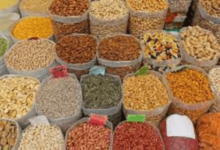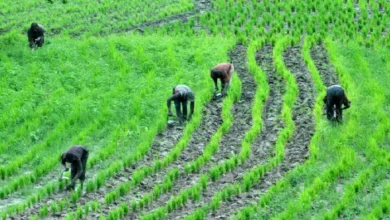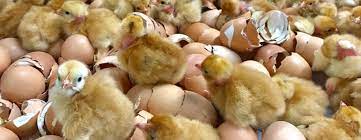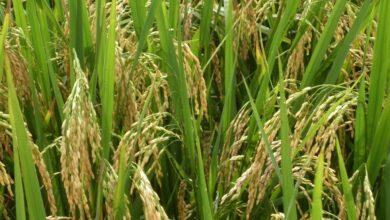9 Steps to Start Paddy Rice Business in Nigeria
Steps to Start Paddy Rice Business in Nigeria
Here in this post, we are going to discuss how to start paddy rice business in Nigeria. We hope you find this informative.
With over 5.5 million tons of it being consumed in Nigeria annually, and with it being Nigeria’s most consumed staple food, it is no exaggeration to say Nigerians love rice.
👉 Relocate to Canada Today!
Live, Study and Work in Canada. No Payment is Required! Hurry Now click here to Apply >> Immigrate to CanadaEvery one of us grew up eating the traditional “Sunday rice”. We celebrate popular holidays – Christmas and New Year – feasting on it. We dish it out for weddings, birthdays and all our festivities.
Read Also: 1,108 rice farmers to benefit from CBN loan in Daura

Even the Hausa’s use it to make the popular Tuwo shinkafa. However, of the 5.5 million tons of rice being consumed annually, only 3.6 million tons are produced locally. Meaning, the country is unable to meet the heavy demand for rice.
Little wonder we spend roughly N365 Billion importing the remaining 1.9 million tons of rice every year and why we are the world’s largest importer of rice.
With these figures, you can see why rice business can be quite profitable, and if you’re among those already considering going into it, this article is for you.
For those of us still not convinced, we’ll give you some reasons why you should go into the rice production business.
Read Also: How to start rice farming in Nigeria
Rice production business? Why?
1. High consumer demands
As we’ve mentioned before, Rice is in high demand in Nigeria, with the aforementioned 5.5 tons consumed annually, and with the growing population of the country, this figure will only grow over time.
👉 Relocate to Canada Today!
Live, Study and Work in Canada. No Payment is Required! Hurry Now click here to Apply >> Immigrate to CanadaThe country cannot meet this demand through local production, hence the heavy importation of Rice. However, the current administration has tried to cut down heavy importation and encourage local production. That is where you come in.
2. High Yield
Being a cereal crop, rice has a very high yield. Over 100 bags of rice can be harvested in a single farming season with good farming practices. And rice matures fast as well! With the period between planting and harvesting being within 6 months.
3. High-profit returns
Due to the high demand for rice, as well as its high yield, there is a guaranteed high return of capital investment in the rice production business.
Challenges facing rice production business in Nigeria
Like every other business venture, there are challenges involved in starting a rice production business in Nigeria, and it is important you’re informed about them before starting up. Some of the challenges involved are:
1. Capital Intensive
Rice production business requires a high capital investment. For a start, one would require financial resources for land, seed supplies, equipment and machinery, additional manpower, packaging, storage, transportation, and many other requirements. These requirements demand high financial investments.
Read Also: Procedures to Start a Successful Rice Farming Business in Nigeria
2. High Importation
Rice is still being heavily imported in Nigeria, and this is a problem for local producers, as the imported varieties go for cheaper rates than their local counterparts.
3. Crop Pests And Diseases
Rice production business is an agro-business, and so the issue of crop pests and diseases must come into play. Pests and diseases can reduce rice yield and in turn affect profit returns.
Now that we’ve dealt with the reasons why you should go into rice production business and the challenges that follow, let’s look at how you can start rice production.
Processes Involved In Starting Rice Production Business
1. Choice of Land
Being an agro-business, geographical and ecological factors come into play when starting rice business, especially in the area of land, where factors like fertility and water retention will be considered.
It is advisable that when choosing land for rice cultivation, one must go to ecological zones where land is cultivated traditionally.
Also, the right kind of land is important. Rice generally thrives in the land that has high water retention capacity and lands that are swampy or clayey.
2. Prepare the land for rice cultivation
Land preparation for rice cultivation should start around November/ December when there are no rains so that the land will be ready around February when the raining seasons in Nigeria begin.
However, for those using land in Savannah regions, land preparation can begin around February. The land should be cleared of bushes and weeds using a hoe, so as to expose the rhizomes of perennial weeds to the heat of the sun.
3. Choose Right Variety of Seeds
It is important that you choose the right variety of seeds because different varieties have different growth yield. It is also important that you manually choose/handpick your seeds, so as to choose healthy seeds, because of the healthier your seeds, the better your chances of a high yield. When buying seeds, it is advisable you buy from a company registered with The National Agricultural Seeds Council (NASC).
4. Plant Seeds at the Right Time
Depending on your geographical location, the time for seed planting differs. In forest regions, seeds should be planted around mid-March to mid-April, after 3 good spots of rain. While in the savannah regions, seeds should be planted around mid-May to mid-June.
5. Plant Seeds Using Appropriate Methods
There are two methods with which you can plant your seeds. You could either plant directly (direct seeding) on a farm, or plant in a nursery, before transplanting it to the farm.
6. Direct seeding on farmland
This is done either by broadcasting or dibbling. You start by dividing the field into plots of 50 or 100m2 and then you construct small bunds.
For dibbling, you can plant seeds at a rate of 60 kg/ha, while for broadcasting, you can plant at a rate of 80–100 kg/ha, and 50–65 kg/ha by drilling in rows spaced 30 cm apart. Weeds can be a problem in this system, but you can apply herbicides to control them.
Read Also: How To Start Yam Farming In Nigeria
7. Nursery raising
Put your seeds into gunny bags and soak them in water for 24 hours. After soaking, place your seeds under shades while still covered in gunny bags, and sprinkle water over them at regular intervals. Ensure you turn your seeds with your hands three times a day for adequate aeration and to avoid damage due to heat.
The seeds begin to sprout after about 36-48 hours. When this happens, they are ready for sowing. The next step is to broadcast them in a seedbed on a puddle nursery field. If necessary, you should construct drainage canals for proper water removal. Also, decomposed organic manures and a small amount of inorganic fertilizer may be added to the nursery.
8. Transplanting
Seedlings should be transplanted to the farmland from the nursery bed after 21 days. This is done by uprooting the seedlings. 2–3 seedlings should be transplanted per hill. Spacing should be 20 cm between rows and 15–20cm between plants.
Also, remember to transplant early maturing varieties 15 cm apart and transplant medium or late maturing varieties 20 cm apart.
9. Fertilizer Application
For transplanted seedlings, apply 200 kg/ha which is equivalent to 4 bags of NPK 15:15:15 carefully in the soil prior to transplanting. Then 30 days after transplanting, apply another 100kg/2 bags of Urea per hectare broadcast.
For direct seedlings; Apply 100kg of NPK 15-15-15 per hectare (2 bags/ha) as basal fertilizer, 2–3 weeks after the appearance to facilitate the integration of fertilizer into the soil. You can also apply 50 kg/1 bags of Urea per hectare, 5weeks after sowing.
10. Weed and pest control
The first weeding should be done on the farmland within 2 to 3 weeks after an appearance with a hoe. While the second weeding should be done 6 to 7 weeks after appearance.
Chemicals could also be used to control weeds. You should seek the advice of a specialist for the best kind of chemicals to use.
The most common pets found on rice farms are birds, rodents, termites and armyworms. Birds can be easily scared away, while rodents can be killed with snap traps.
Termites can be controlled by burning all dead woods and plant deposits. You should also locate termite mounds on the farmland and destroy them by spraying Nogos 50 at the rate of 30 ml per 4.51 (one gallon) of water.
Armyworms can be controlled by spraying Gammalin 20 or Carbaryl (Vetox 85) at the rate of 1.68 kg in 225 liters of water per hectare.
11. Harvest your rice
Your rice should be ready for harvesting in about 4 months. At maturity, rice goes from green colour to light brown. When threshing, thresh carefully to avoid losses.
Thresh on a mat or tarpaulin placed over the concrete floor. Do not thresh rice on the bare floor. It is also important that after harvesting, you should grow leguminous plants like beans and peas and plow rice residues into the soil. This helps to maintain soil fertility ahead of another planting season.
Post-harvesting processes
After harvesting, what you have is called paddy rice. Next comes the post-harvesting processes, where you prepare your rice for marketing. The following are processes that follow harvesting;
1. Drying
This is done using a mechanical dryer – if available – or manually. Manual drying is done outside, under the sun. The paddy rice should be sun-dried to a moisture level of 13-14 percent. This should be done slowly over a 2-3 day period to reduce breakage during milling.
2. Parboiling
Soak your paddy rice in hot water with a temperature of around 70°c for 5-6 hours. Then, you should remove all the empty floating grains. Next, parboil rice by steam soaking paddy in a huge bag for 10-16 minutes.
This is done by suspending the bag over steaming water in a drum. When you notice the rice husks begin to split open, you can discontinue parboiling.
Read Also: Steps To Start Carrot Farming Business In Nigeria
3. Hulling
This is done using a hulling machine. It the process of separating the edible part of the rice from the hull.
4. Packaging
Finally, you should package your rice in a clean, dry bag. Your farm name, logo and other necessary information should be on the bag. Your rice is ready for marketing. Store your products in a cool, dry, rodent-free place.
We hope you’ve found this article helpful. Put the things you’ve learned here to work and make money from rice production. Thank you later.








